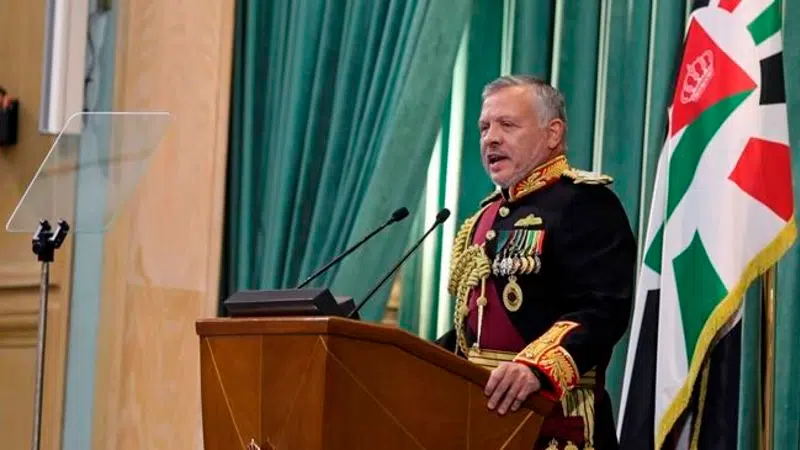
Jordan retakes lands leased by Israel in 1994 peace accord
AMMAN, Jordan — Jordan’s king announced Sunday that his country is retaking “full sovereignty” over two pieces of land leased by Israel, reflecting the cool relations between the neighbouring countries as they mark the 25th anniversary of their landmark peace deal.
King Abdullah II had said last year that he wouldn’t renew the parts of the 1994 treaty that gave Israel a 25-year lease of the two small areas, Baqura and Ghamr. Even amid mistrust and a looming deadline, Israel was hoping a solution could be found.
But in a speech to parliament, the king appeared to put an end to that.
“Today, I announce the expiration of the Peace Treaty annexes on Ghamr and al-Baqura and the imposition of our full sovereignty over every inch of those lands,” he said.
